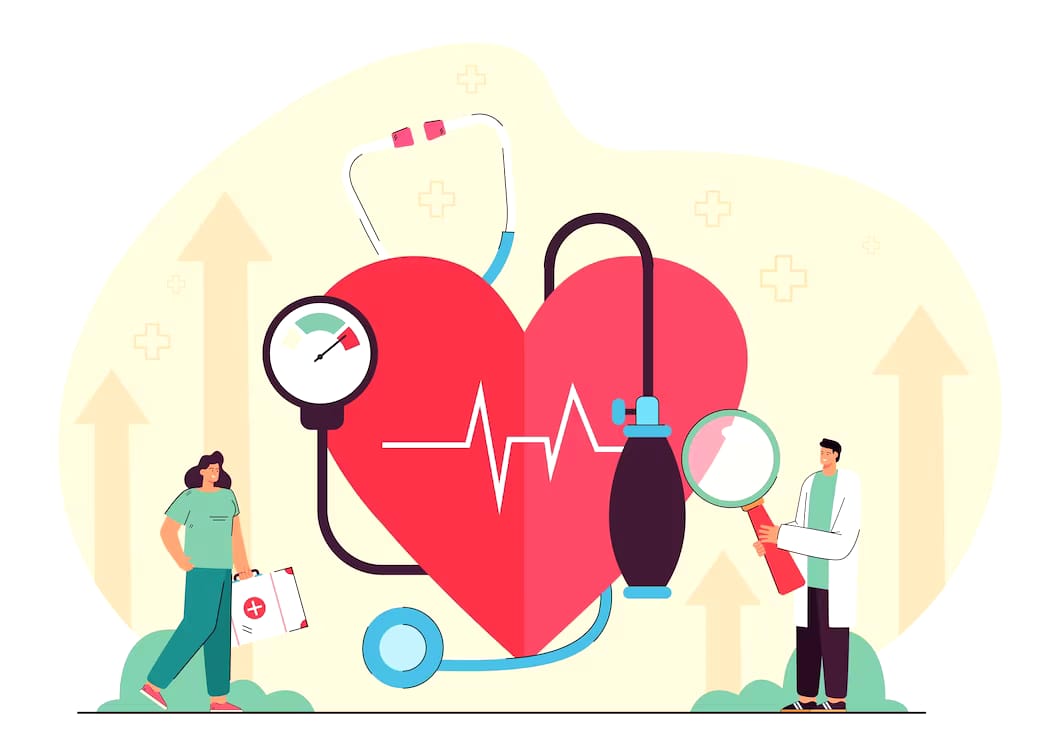A Comprehensive Introduction to Knowing Heart Disease and Stroke
"Explore the intricate landscape of heart disease and stroke in this comprehensive guide, unraveling their complexities and empowering understanding for proactive prevention and management."

Although heart disease and stroke rank among the world's top causes of death, they are frequently preventable or efficiently controlled with the appropriate information. An extensive examination of both disorders, including symptoms, and strategies for preserving brain and heart health, will be provided in this guide.
Heart disease symptoms: discomfort or pain in the chest (angina), Lack of breathing, Arms or leg harm, feeling numb, or are weak Back, upper abdomen, throat, jaw, or pain in the neck
Stroke symptoms: Abrupt numbness or weakness, particularly on one side of the body Unexpected, disorientation, difficulty speaking or comprehending speech, Unexpected vision problems in one or both eyes, Abrupt difficulty walking, lightheadedness, or imbalance or disarray, Abrupt, intense headache without apparent cause
Heart problems and strokes Selecting a Healthier Way of Living:
Regular Exercise: Aim for at least 150 minutes of moderate aerobic exercise or 75 minutes of intense exercise per week. A balanced diet includes fruits, vegetables, whole grains, lean protein, and healthy fats. Reduce your consumption of sugar, salt, and unhealthy fats. Maintaining a healthy weight reduces the risk of strokes and heart disease. Avoid smoking: Quitting smoking will improve your cardiovascular health in general. Limit Alcohol: Alcohol consumption should be moderate because it increases risk factors when ingested in excess.
In Regular base Healthier Lifestyle:
A well-balanced diet includes eating a variety of foods, controlling portions, staying hydrated, and limiting processed foods. Regular exercise includes physical activity, strength training, and remaining active throughout the day. Excellent Sleep: Maintaining a consistent sleep schedule, creating a relaxing environment, and limiting screen time before bedtime. Stress Management: Mindfulness and meditation, regular breaks, and hobbies can help you relax and unwind. Preventive health care includes regular check-ups, vaccinations, and the monitoring of health metrics. Hydration is again a very important aspect: Drink plenty of water and limit sugary drinks. Healthy environment: Keep your living space clean and pollution-free, and use an ergonomic workstation.
What's Your Reaction?



























:max_bytes(150000):strip_icc()/GettyImages-80487462-59833fb6d088c000112fcc2c.jpg)





/https://tf-cmsv2-smithsonianmag-media.s3.amazonaws.com/filer/b6/30/b630b48b-7344-4661-9264-186b70531bdc/istock-478831658.jpg)






)

























:max_bytes(150000):strip_icc()/GettyImages-173607153-3eb9caf873014f9ab2e3c11cf071d2c9.jpg)



















)



